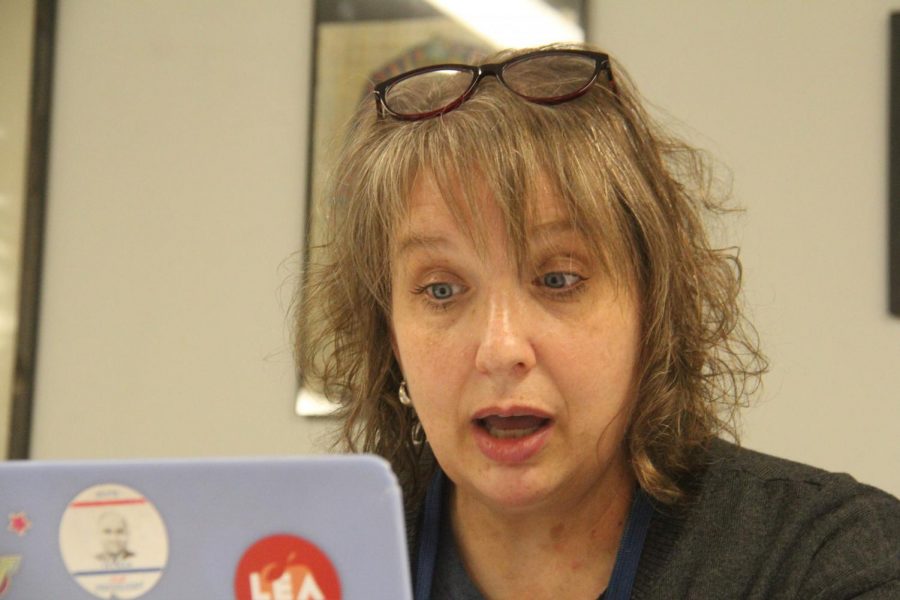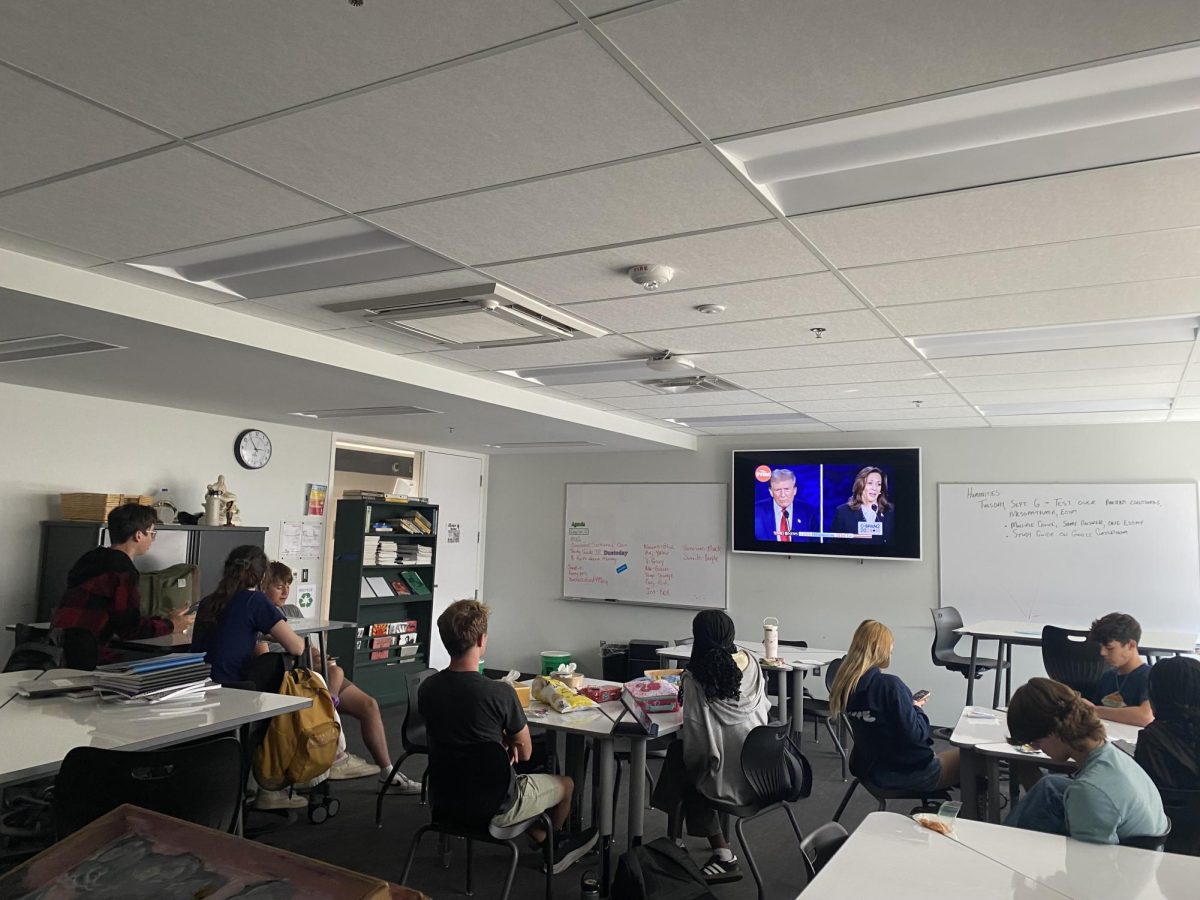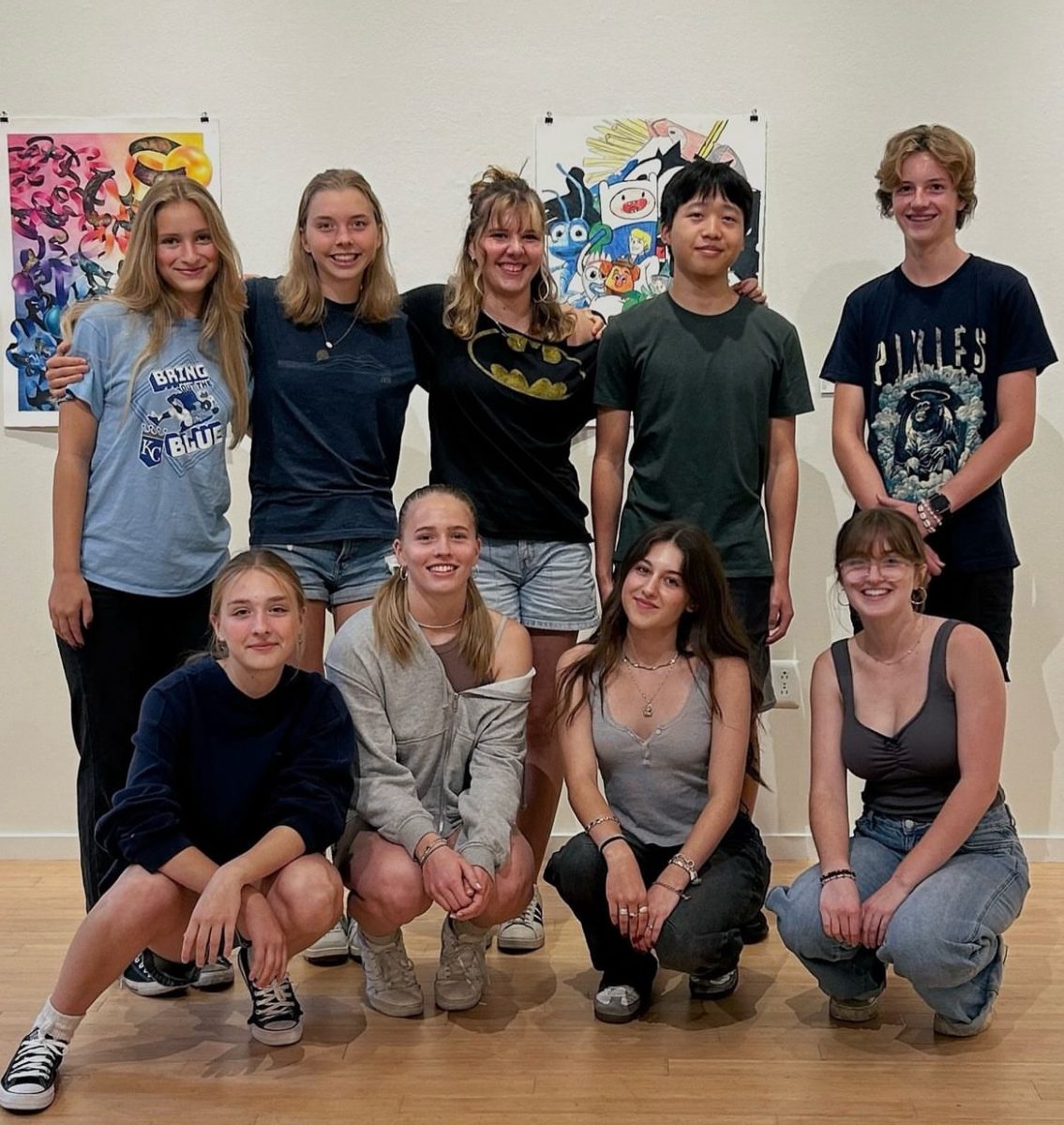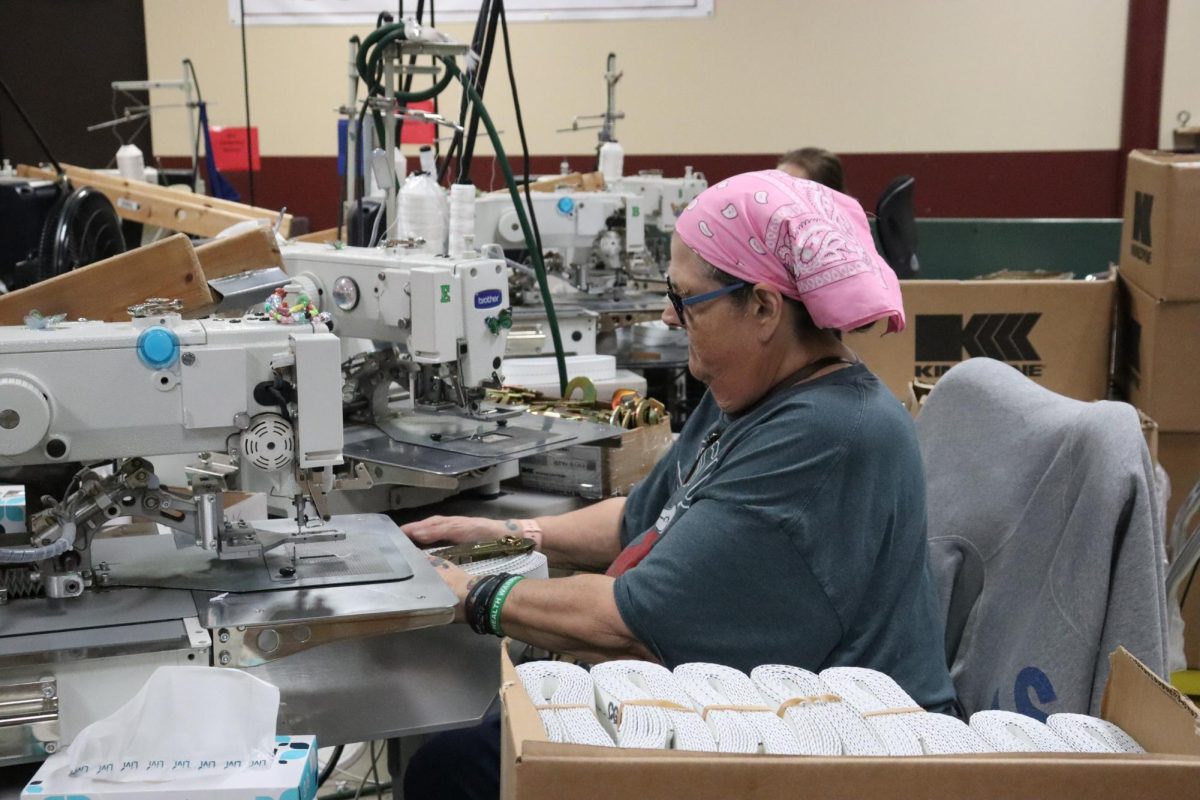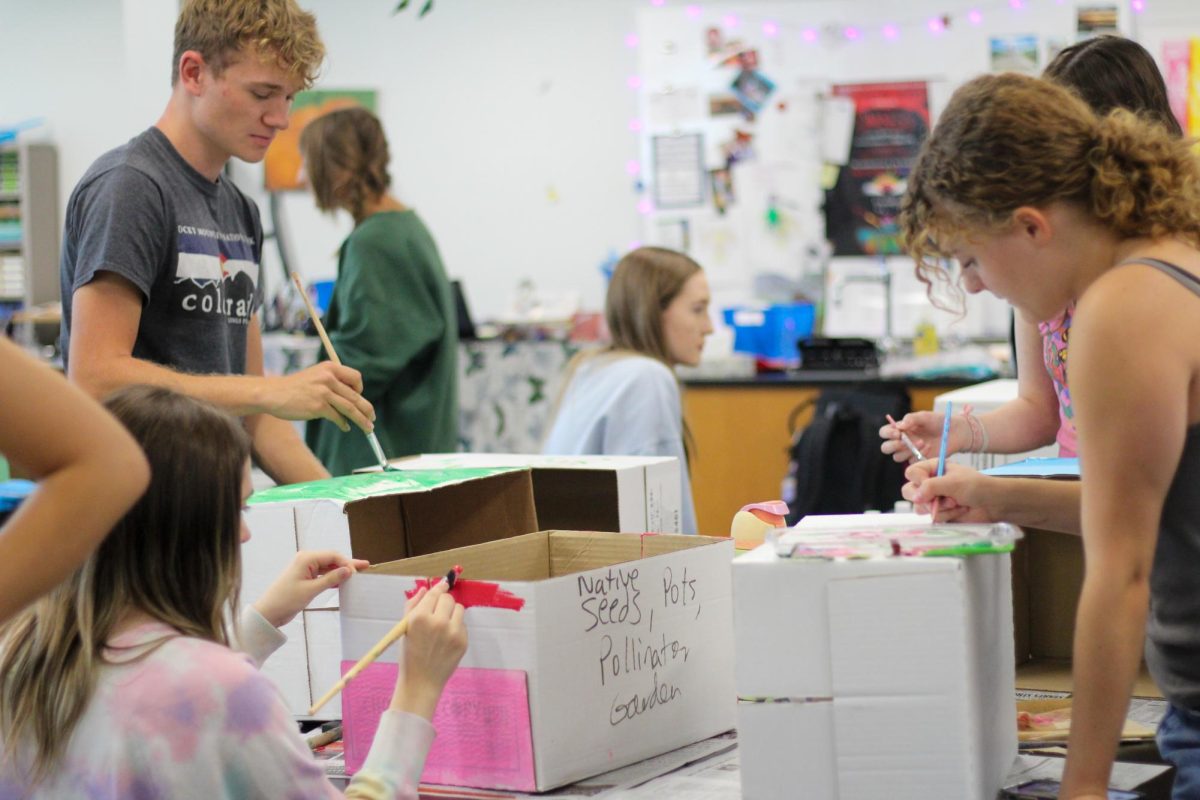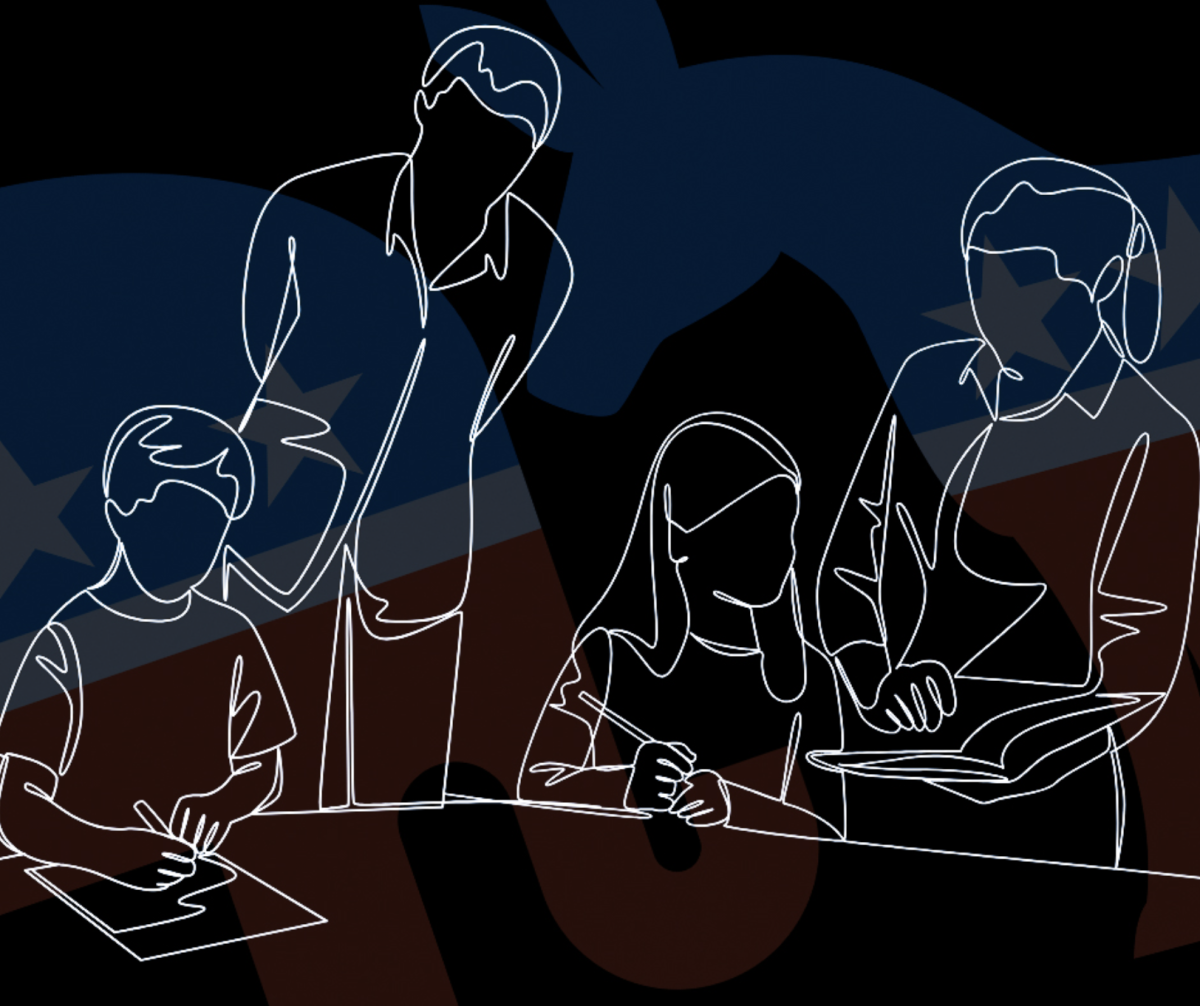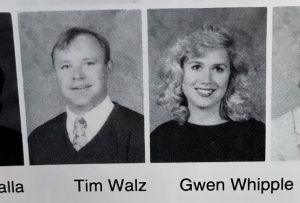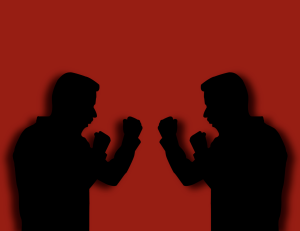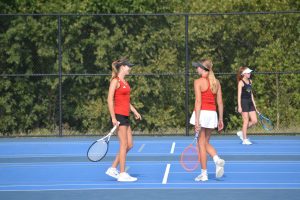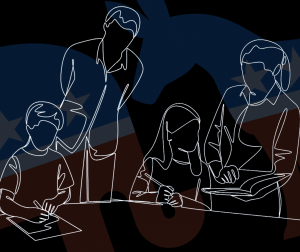Teachers speak with students in the aftermath of Capitol insurgence
Talking to her LINK Crew class about the riots at the U.S. Capitol the previous day, history teacher, Valerie Schrag explains the significance of the events as students returned to school on Jan. 7. Schrag, a history teacher, was among faculty members who helped students make sense of the news.
January 15, 2021
As outrage swelled nationally, Lawrence High teachers took extra time in their classes last week to talk about the attack on the U.S. Capitol.
This comes after a Trump-supporting mob infiltrated the Capitol building in an attempt to stop Congress’ official confirmation of the election results. The mob breached security and successfully entered the building, where one person was shot and later died.
German teacher Arne Scholz made a point to spend a large portion of his class period allowing students to decompress and ask questions.
“I do try to point out in those lessons — when I talk about how important it is to think for yourself — not blindly follow any leaders, either your friends, your family, your teachers or political leaders for that matter,” Scholz said. “To have your own opinion, to make up your mind by yourself to get your information from different sources, to fact check your information, to come to your own conclusion”
Junior Gretchen Bannwarth said these types of conversations are essential.
“I think it’s really important that our teachers are taking time to dive into what happened,” she said. “It gives a chance for the students to learn from each other. It’s been really nice having a place to share my voice and my opinions. Having these conversations is what opens the floor for a more progressive generation. Seeing how much people know and understand what’s happening gives me hope. Open-minded people getting to grow with each other is really important.”
Junior Vivian Podrebarac talked about how shocked her classmates felt in light of the attacks.
“Everyone is saying the same thing about how they have never seen anything like this before and how disturbing it is,” Podrebarac said.
Junior Izzy Paradis noted the difference between how the majority white rioters were treated by Capitol police as opposed to Black Lives Matter protesters from the summer.
“Mostly just like I think we all kind of expected something bad to happen and it’s been building for four years,” Paradis said. “Trump has been influencing his supporters to do something like this from the very beginning and when it finally happened he thanked them for it. It’s also just insane how there were a bunch of Nazis, and white supremacists in a government building breaking the law and only around 40 of them got arrested. Not to say that these two are comparable at all but the Black Lives Matter protesters were met with much more violence when they were peacefully protesting, and these people who came to the Capitol and were assaulting police and breaking into a government building barely got any punishment or penalty.”
Scholz said that the events of yesterday showed how important proper education is in fighting the type of misinformation that can lead of violence.
“We need to help people to understand what is going on around them. To make sure that they use different sources when they try to find the facts that help them make decisions,” he said. “But it also shows how important it is to teach people about history about what has happened in history, what can happen. Civics, how does government work, law enforcement, on order all of this? These are all boring, abstract things when you sit in a classroom and have to learn about them, but it’s part of our life. And they can help us avoid something like yesterday. At the end of the day, as an immigrant, I would say that yesterday, America lost.”
Bannwarth said that teachers like Valerie Schrag show students they care by taking the time to talk to them about important issues.
“I think the students at LHS are valued in the sense that the teachers genuinely seem to care about our thoughts on matters like this,” Bannwarth said. “One teacher specifically, Ms. Schrag, was really good at letting us know about this issue and giving us the opportunity to ask questions and become more informed.”
Scholz said that it is important to show students how fragile democracy is, and uses his perspective as a German to teach the importance of tolerance.
“What I also tried to do is as a German, as a history teacher, to show them parallels and history and especially in German history,” he said. “If enough people stand idly by for democracy to be lost, and to end up with an authoritarian regime, fascist regime, just like Germany did in 1933. And this idea that of the fragility of democracy, that democracy is not set in stone in this country or in any country, that it is not a given. That is not indestructible. I think that is very important, because we take it for granted oftentimes. But democracy needs to be nurtured and needs to be worked on, if you like, it needs to be renewed by every generation”



